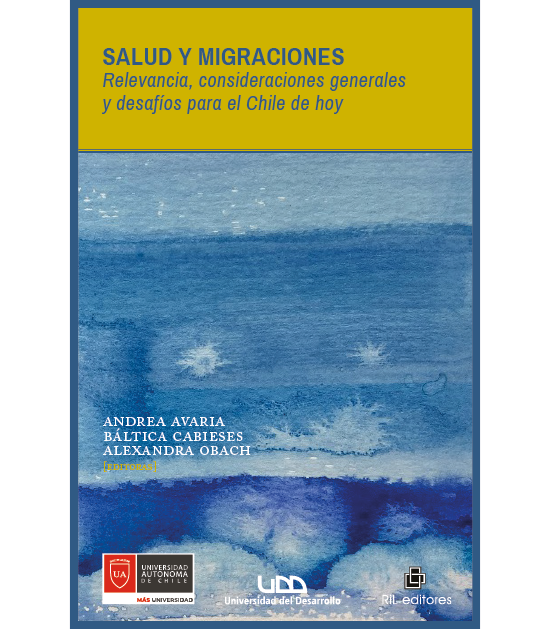Mostrar el registro sencillo del ítem
Resources and vulnerabilities of migrant communities in Chile during the SARS-CoV-2 pandemic
| dc.contributor.author | Cabieses, Báltica | |
| dc.contributor.author | Obach, Alexandra | |
| dc.contributor.author | Blukacz, Alice | |
| dc.contributor.author | Carreño, Alejandra | |
| dc.contributor.author | Pérez, Claudia | |
| dc.contributor.author | Vicuña, José T. | |
| dc.contributor.author | Stefoni, Carolina | |
| dc.contributor.author | Avaria, Andrea | |
| dc.date.accessioned | 2024-04-10T06:35:17Z | |
| dc.date.available | 2024-04-10T06:35:17Z | |
| dc.date.issued | 2022 | |
| dc.identifier | 10.15446/rsap.v24n4.99551 | |
| dc.identifier.issn | 01240064 | |
| dc.identifier.uri | https://hdl.handle.net/20.500.12728/11024 | |
| dc.description.abstract | Objective To know, in the context of the SARS-CoV-2 pandemic, the psychosocial and socioeconomic vulnerabilities experienced by the international migrant population in Chile, as well as the resources and social capital reported from the community itself and its support networks, and to analyze the reception and implementation of the measures recommended by the health authorities in the different stages of the pandemic in the country. Methods Descriptive qualitative study. The information was collected through 40 semi-structured individual interviews with migrants (N=30) and key informants (N=10), carried out through online communication platforms during 2020. A thematic analysis of the material was carried out. The project was approved by the Scientific Ethics Committee of the Faculty of Medicine of the Universidad del Desarrollo. Results The main vulnerabilities experienced by migrants in the context of the pandemic include overcrowding, job insecurity and economic needs, use of public transport, misinformation and beliefs about COVID-19, experiences of discrimination and xenophobia, lack of support networks, and migratory status. The main resources are support networks, the possibility of working remotely or going out to work, access to information, access to the assistance and municipal network, and government support and civil society. In addition, experiences of diagnosis of COVID-19 are reported, identifying difficulties in accessing PCR testing, and family and work adaptations such as changes in lifestyle habits inside and outside the home. Discussion The study provides relevant and unpublished information for the construction of health policies for international migrants with a focus on sanitary crises. It highlights the need to strengthen cross-cultural strategies for the prevention of infection and health promotion, and to improve access to health in the context of the pandemic and beyond, thereby mitigating the social vulnerability experienced by migrants and enhancing their coping resources. © 2022, Universidad Nacional de Colombia. All rights reserved. | es_ES |
| dc.language.iso | es | es_ES |
| dc.publisher | Universidad Nacional de Colombia | es_ES |
| dc.subject | coronavirus infections | es_ES |
| dc.subject | Emigration and immigration | es_ES |
| dc.subject | qualitative research | es_ES |
| dc.subject | social vulnerability | es_ES |
| dc.title | Resources and vulnerabilities of migrant communities in Chile during the SARS-CoV-2 pandemic | es_ES |
| dc.title.alternative | Recursos y vulnerabilidades de comunidades migrantes en Chile para enfrentar la pandemia SARS-CoV-2 | es_ES |
| dc.type | Article | es_ES |


